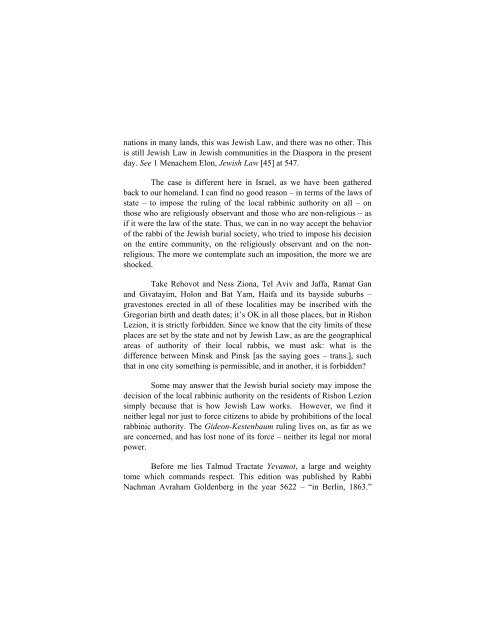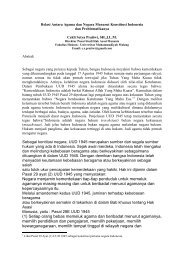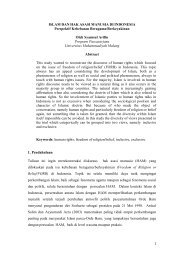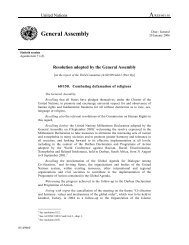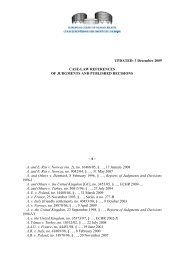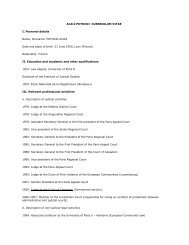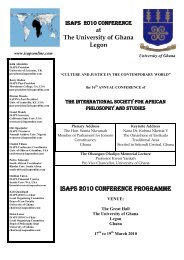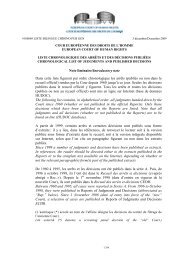Fredrika Shavit v. Rishon Lezion Jewish Burial Society
Fredrika Shavit v. Rishon Lezion Jewish Burial Society
Fredrika Shavit v. Rishon Lezion Jewish Burial Society
Create successful ePaper yourself
Turn your PDF publications into a flip-book with our unique Google optimized e-Paper software.
nations in many lands, this was <strong>Jewish</strong> Law, and there was no other. This<br />
is still <strong>Jewish</strong> Law in <strong>Jewish</strong> communities in the Diaspora in the present<br />
day. See 1 Menachem Elon, <strong>Jewish</strong> Law [45] at 547.<br />
The case is different here in Israel, as we have been gathered<br />
back to our homeland. I can find no good reason – in terms of the laws of<br />
state – to impose the ruling of the local rabbinic authority on all – on<br />
those who are religiously observant and those who are non-religious – as<br />
if it were the law of the state. Thus, we can in no way accept the behavior<br />
of the rabbi of the <strong>Jewish</strong> burial society, who tried to impose his decision<br />
on the entire community, on the religiously observant and on the nonreligious.<br />
The more we contemplate such an imposition, the more we are<br />
shocked.<br />
Take Rehovot and Ness Ziona, Tel Aviv and Jaffa, Ramat Gan<br />
and Givatayim, Holon and Bat Yam, Haifa and its bayside suburbs –<br />
gravestones erected in all of these localities may be inscribed with the<br />
Gregorian birth and death dates; it’s OK in all those places, but in <strong>Rishon</strong><br />
<strong>Lezion</strong>, it is strictly forbidden. Since we know that the city limits of these<br />
places are set by the state and not by <strong>Jewish</strong> Law, as are the geographical<br />
areas of authority of their local rabbis, we must ask: what is the<br />
difference between Minsk and Pinsk [as the saying goes – trans.], such<br />
that in one city something is permissible, and in another, it is forbidden?<br />
Some may answer that the <strong>Jewish</strong> burial society may impose the<br />
decision of the local rabbinic authority on the residents of <strong>Rishon</strong> <strong>Lezion</strong><br />
simply because that is how <strong>Jewish</strong> Law works. However, we find it<br />
neither legal nor just to force citizens to abide by prohibitions of the local<br />
rabbinic authority. The Gideon-Kestenbaum ruling lives on, as far as we<br />
are concerned, and has lost none of its force – neither its legal nor moral<br />
power.<br />
Before me lies Talmud Tractate Yevamot, a large and weighty<br />
tome which commands respect. This edition was published by Rabbi<br />
Nachman Avraham Goldenberg in the year 5622 – “in Berlin, 1863.”


